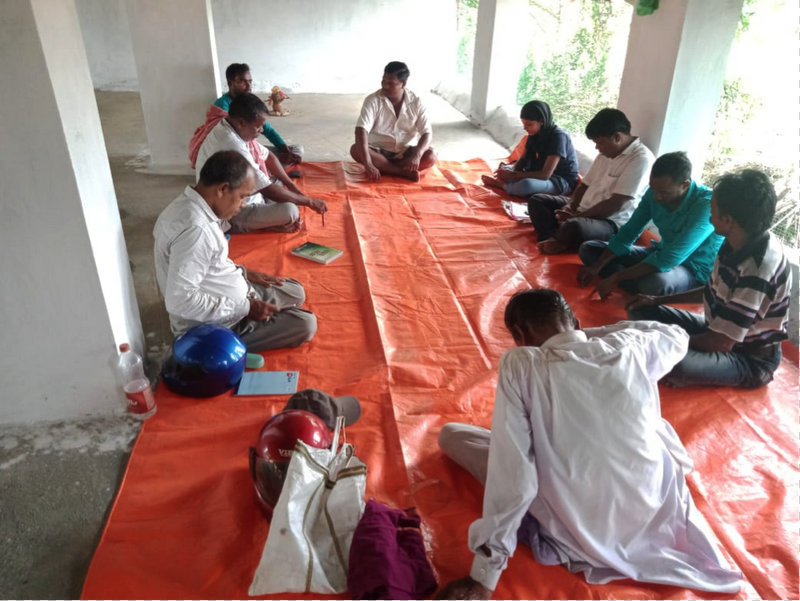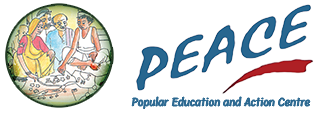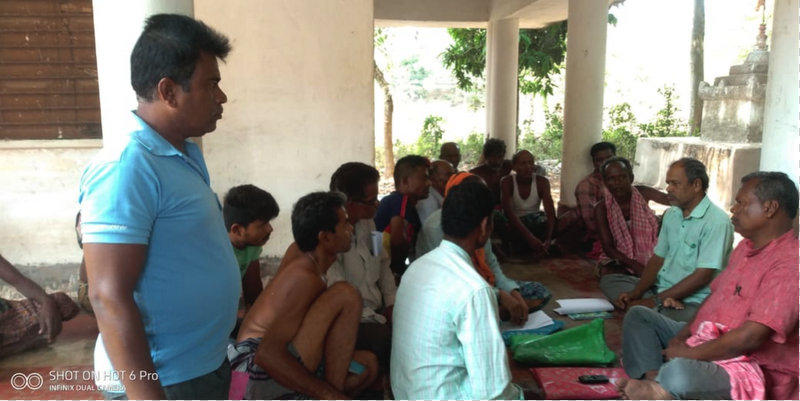Name of Fellow: Gadadhar Pradhan
Genre: Social and Economic Justice
Area of Work: Bhubaneshwar, Puri districts in Odisha.
Gadadhar Pradhan is a researcher-activists based out of Bhubaneswar. He is known for his research on de-notified communities living in Odisha who have migrated to the state from Andhra Pradesh.Gadadhar dropped out of his master’s degree in the 1990s to join the struggles going on against Tata’s takeover of Chilika lake. He was deeply influenced to join the movement as the take over would destroy the livelihood of fishing and farming communities, a fact he could easily grasp as he comes from a peasant family. The struggle, better known as the Chilika movement, changed his world view and since then he devoted his career to activism for social change.

After spending a year in the Chilika Movement, Gadadhar took a sabbatical from material world and lived in jungle in Khurda district for two years along with his fellow activists from Utkala University. At the university, he was involved in a student group named Krantidarshi Yuva Sangathan which facilitated his sabbatical at the jungle. During this time, he had interacted with many philosophical teachers and leaders who visited the group and learnt about Marxist ideology and Gandhian Philosophy.This learning further developed his understanding about the people and their lives. Influenced by Gandhian way of non-violence and Gandhi’s philosophy, he started to work with de-notified communities living in his state.His early childhood encounters with caste-based discrimination and alienation of de-notified communities made hi pursue activism to get the disenfranchised land rights. As his village was a non-revenue village, he experienced that many government schemes were not reaching his village. This prompted to think how the de-notified communities were faring as they had no land entitlement, resided at secluded areas, and had no option to even get benefits from government schemes.Since then, Gadadhar has been researching on the issues of de-notified communities and working to get them land rights in Odisha. Through the fellowship programme, he intends to build capacity among the DNT communities and create awareness among them about the concepts of justice, equality and freedom. He wants to take the Constitution to the grassroots in the local dialect. So, he is also translating the Constitution to Odia language. Presently he is preparing a pocketbook on constitutional values and rights. He is engaging with community members and impart Constitutional education through workshops, films etc.He is also working to form of a steering group of 20 youth across castes and class representing total 20 villages including Kanta and Badakanta villages as well as other Adivasi youths from Puri district. This group will facilitate discussions on caste, gender, secular values within their communities.
 After spending a year in the Chilika Movement, Gadadhar took a sabbatical from material world and lived in jungle in Khurda district for two years along with his fellow activists from Utkala University. At the university, he was involved in a student group named Krantidarshi Yuva Sangathan which facilitated his sabbatical at the jungle. During this time, he had interacted with many philosophical teachers and leaders who visited the group and learnt about Marxist ideology and Gandhian Philosophy.This learning further developed his understanding about the people and their lives. Influenced by Gandhian way of non-violence and Gandhi’s philosophy, he started to work with de-notified communities living in his state.His early childhood encounters with caste-based discrimination and alienation of de-notified communities made hi pursue activism to get the disenfranchised land rights. As his village was a non-revenue village, he experienced that many government schemes were not reaching his village. This prompted to think how the de-notified communities were faring as they had no land entitlement, resided at secluded areas, and had no option to even get benefits from government schemes.Since then, Gadadhar has been researching on the issues of de-notified communities and working to get them land rights in Odisha. Through the fellowship programme, he intends to build capacity among the DNT communities and create awareness among them about the concepts of justice, equality and freedom. He wants to take the Constitution to the grassroots in the local dialect. So, he is also translating the Constitution to Odia language. Presently he is preparing a pocketbook on constitutional values and rights. He is engaging with community members and impart Constitutional education through workshops, films etc.He is also working to form of a steering group of 20 youth across castes and class representing total 20 villages including Kanta and Badakanta villages as well as other Adivasi youths from Puri district. This group will facilitate discussions on caste, gender, secular values within their communities.
After spending a year in the Chilika Movement, Gadadhar took a sabbatical from material world and lived in jungle in Khurda district for two years along with his fellow activists from Utkala University. At the university, he was involved in a student group named Krantidarshi Yuva Sangathan which facilitated his sabbatical at the jungle. During this time, he had interacted with many philosophical teachers and leaders who visited the group and learnt about Marxist ideology and Gandhian Philosophy.This learning further developed his understanding about the people and their lives. Influenced by Gandhian way of non-violence and Gandhi’s philosophy, he started to work with de-notified communities living in his state.His early childhood encounters with caste-based discrimination and alienation of de-notified communities made hi pursue activism to get the disenfranchised land rights. As his village was a non-revenue village, he experienced that many government schemes were not reaching his village. This prompted to think how the de-notified communities were faring as they had no land entitlement, resided at secluded areas, and had no option to even get benefits from government schemes.Since then, Gadadhar has been researching on the issues of de-notified communities and working to get them land rights in Odisha. Through the fellowship programme, he intends to build capacity among the DNT communities and create awareness among them about the concepts of justice, equality and freedom. He wants to take the Constitution to the grassroots in the local dialect. So, he is also translating the Constitution to Odia language. Presently he is preparing a pocketbook on constitutional values and rights. He is engaging with community members and impart Constitutional education through workshops, films etc.He is also working to form of a steering group of 20 youth across castes and class representing total 20 villages including Kanta and Badakanta villages as well as other Adivasi youths from Puri district. This group will facilitate discussions on caste, gender, secular values within their communities.
